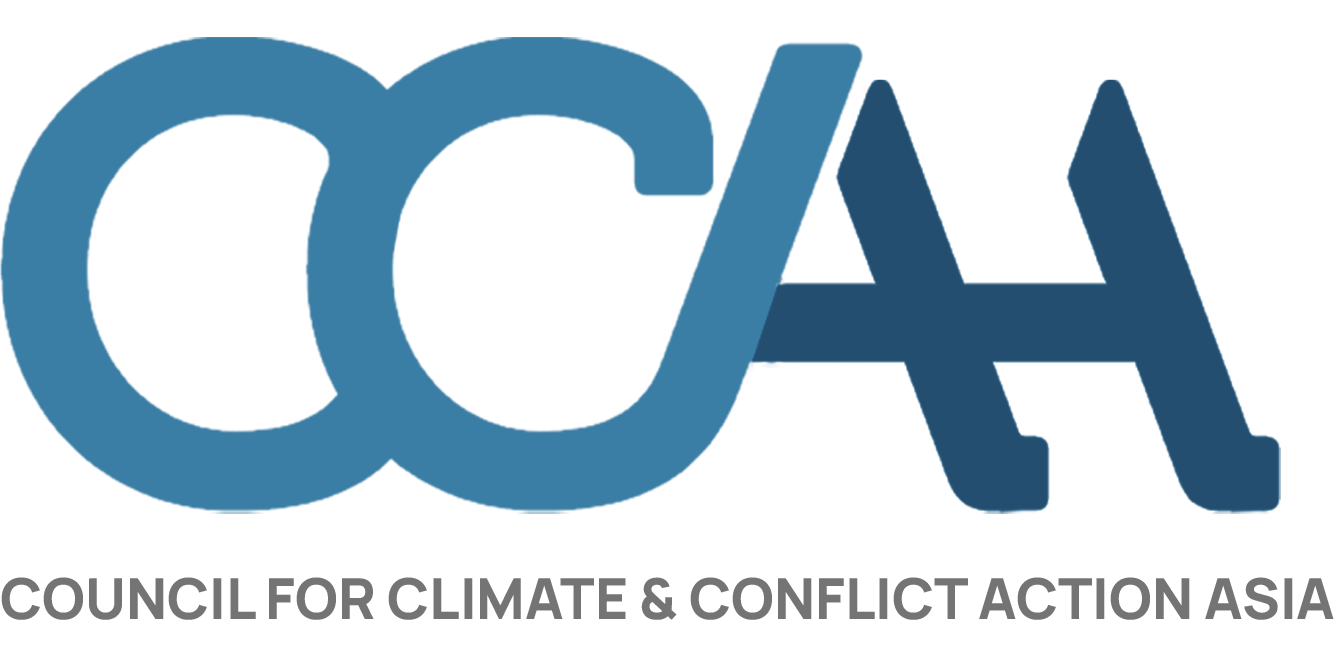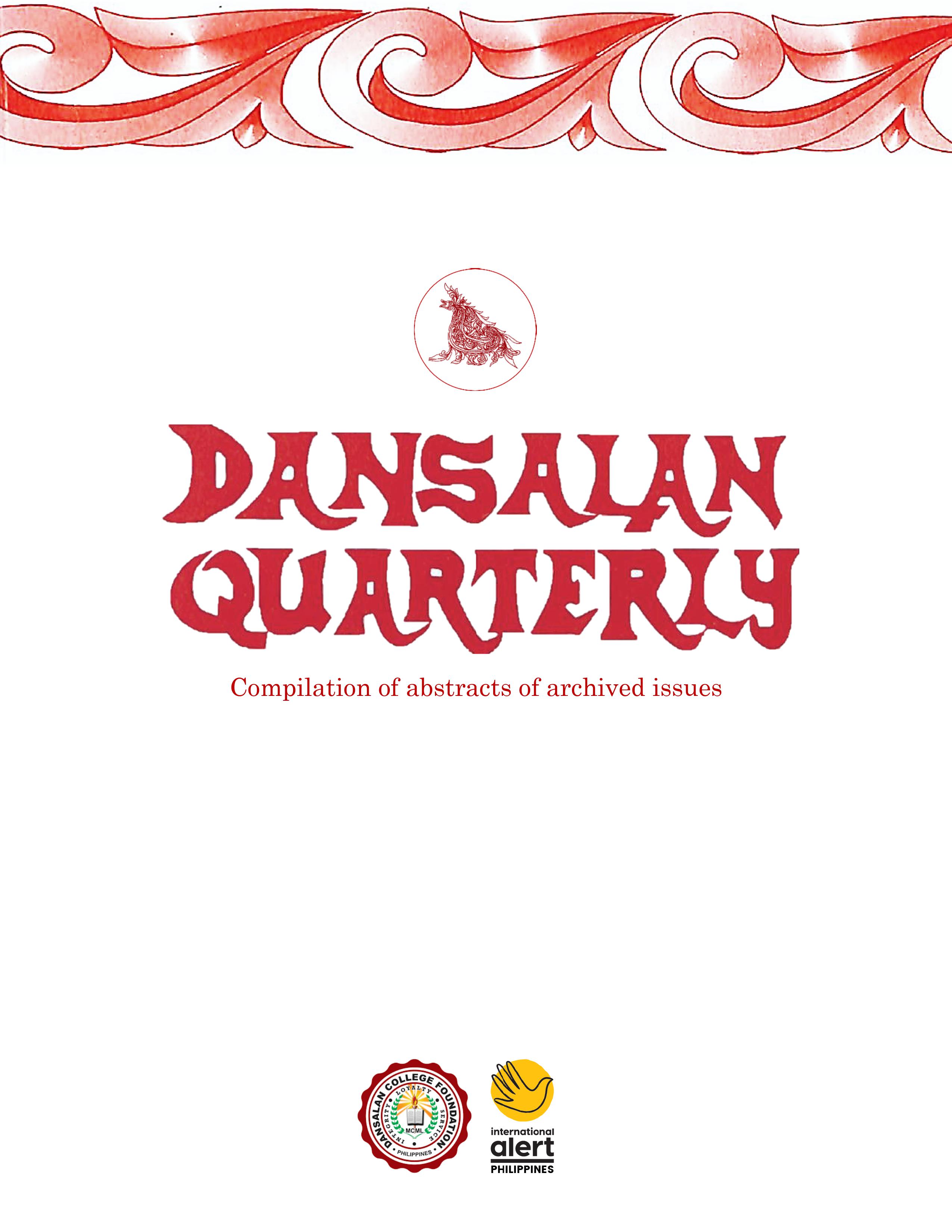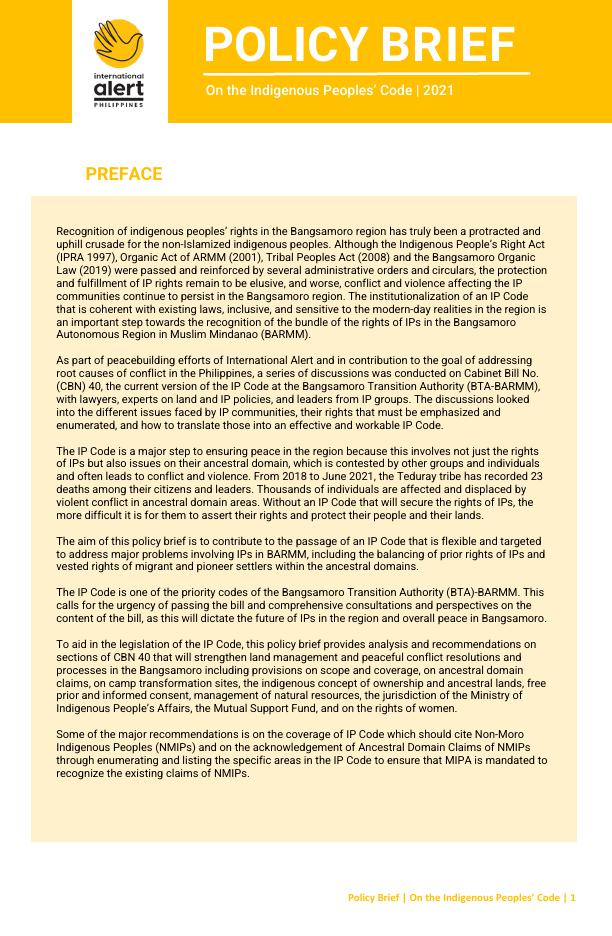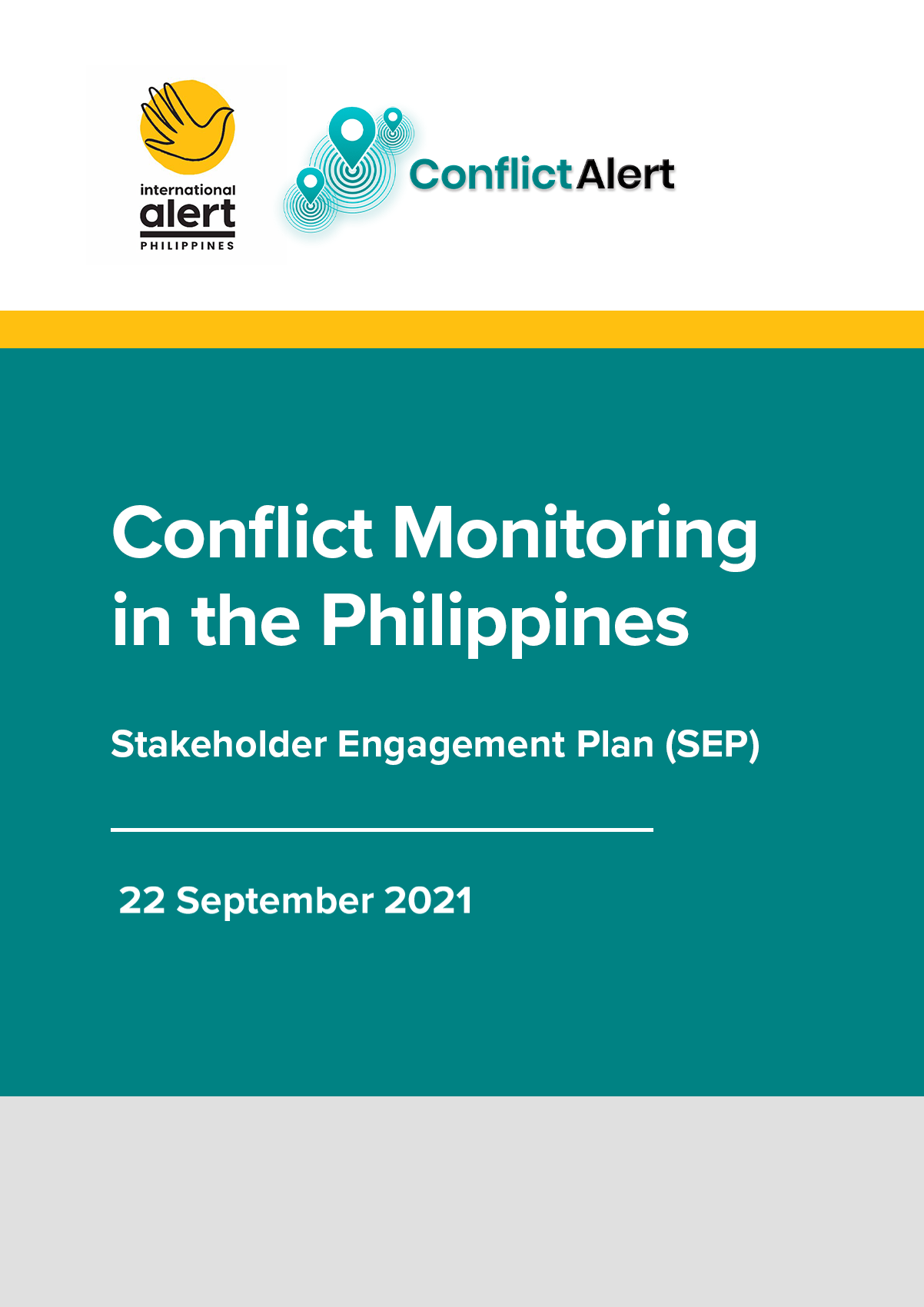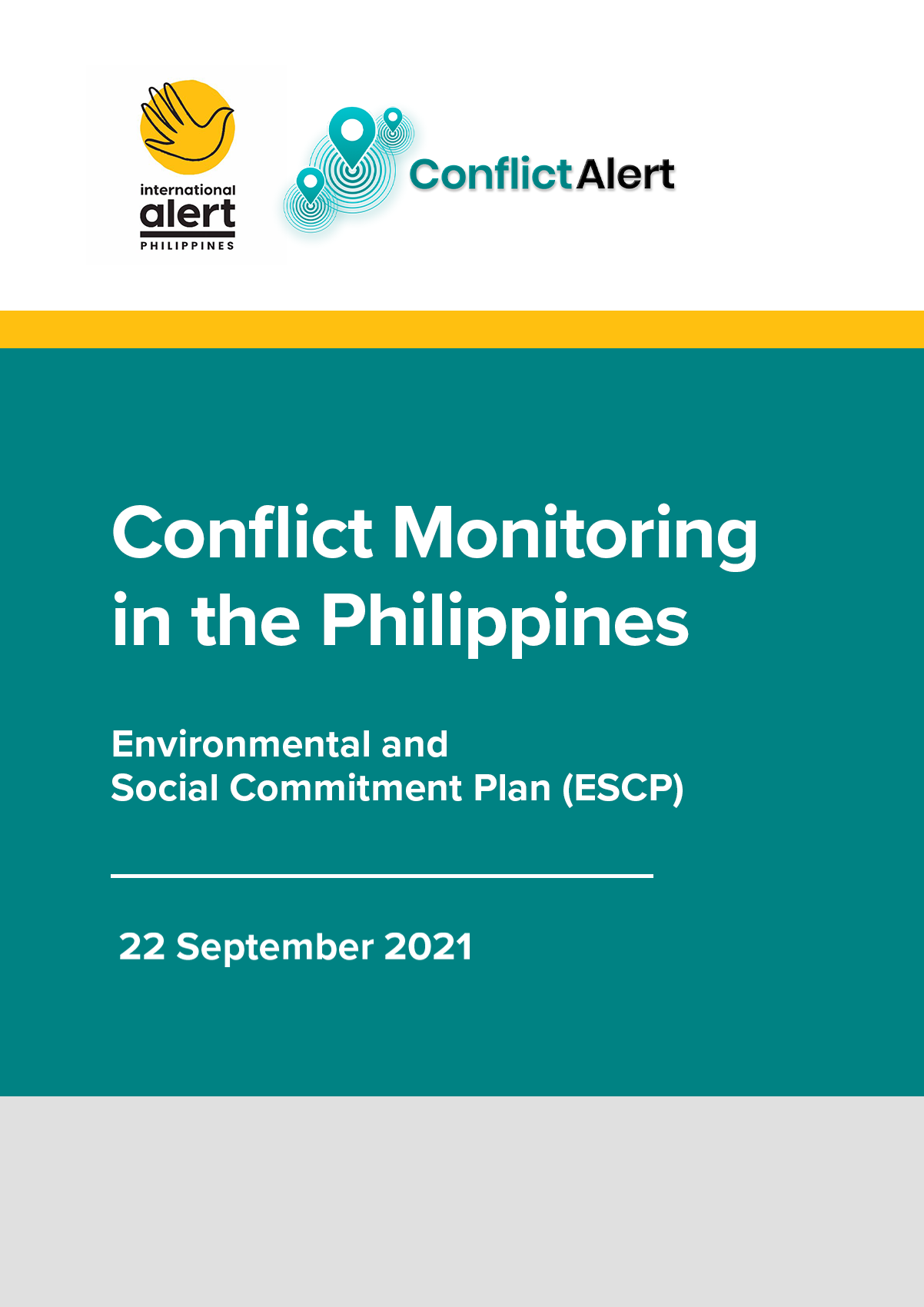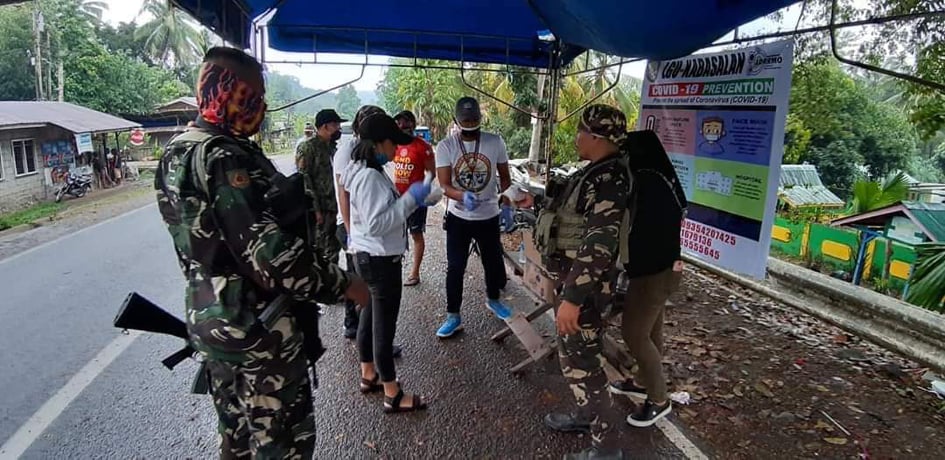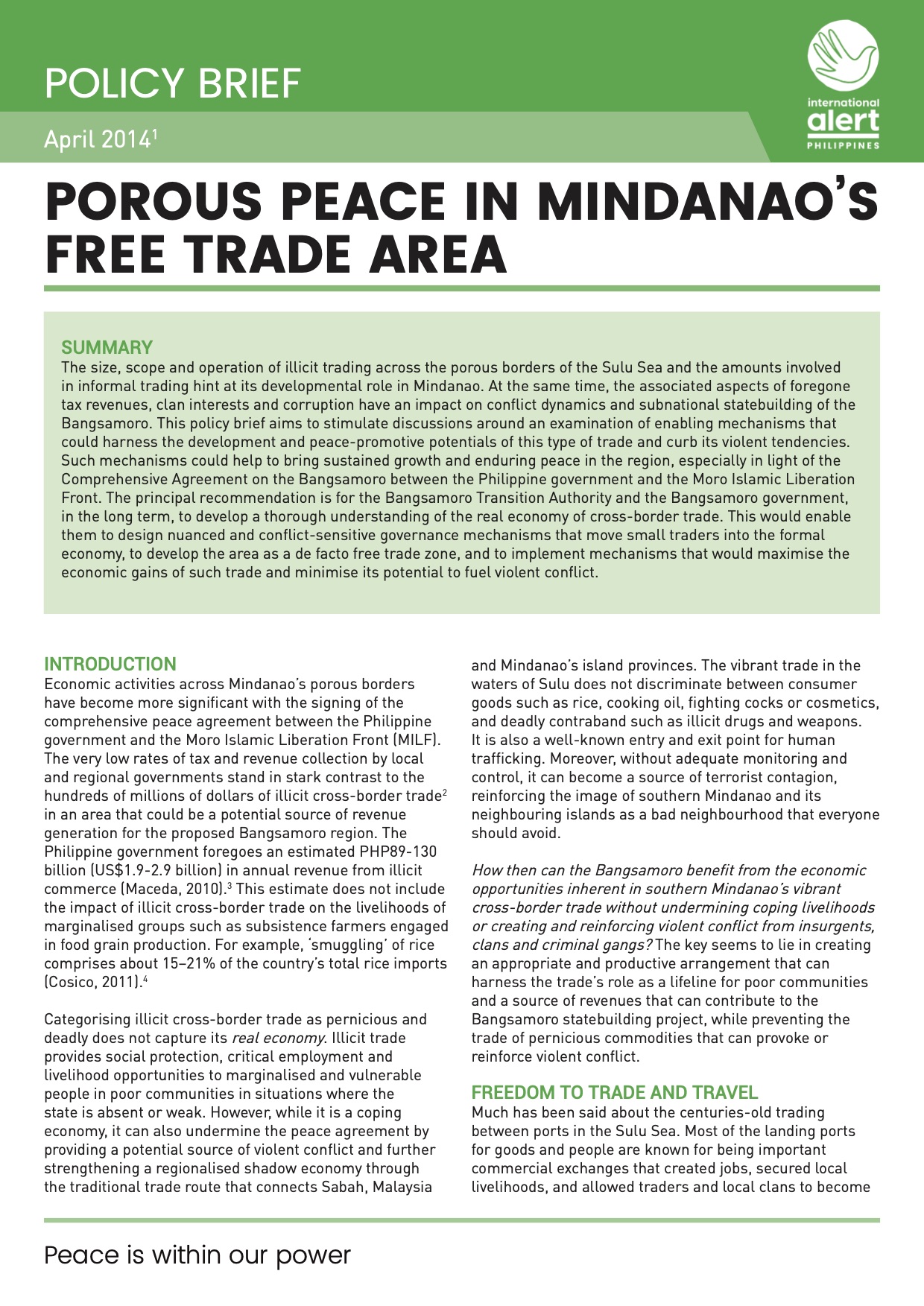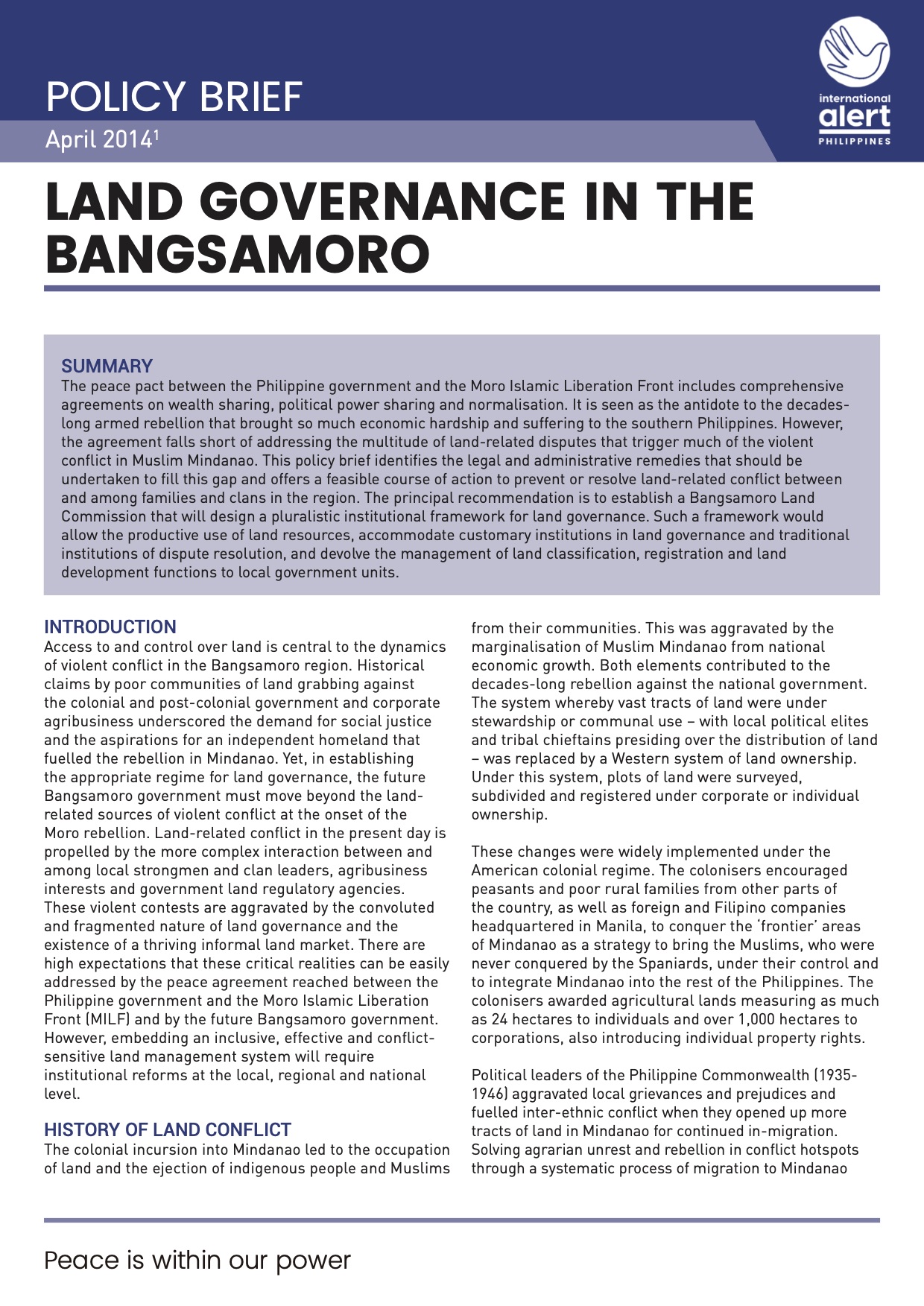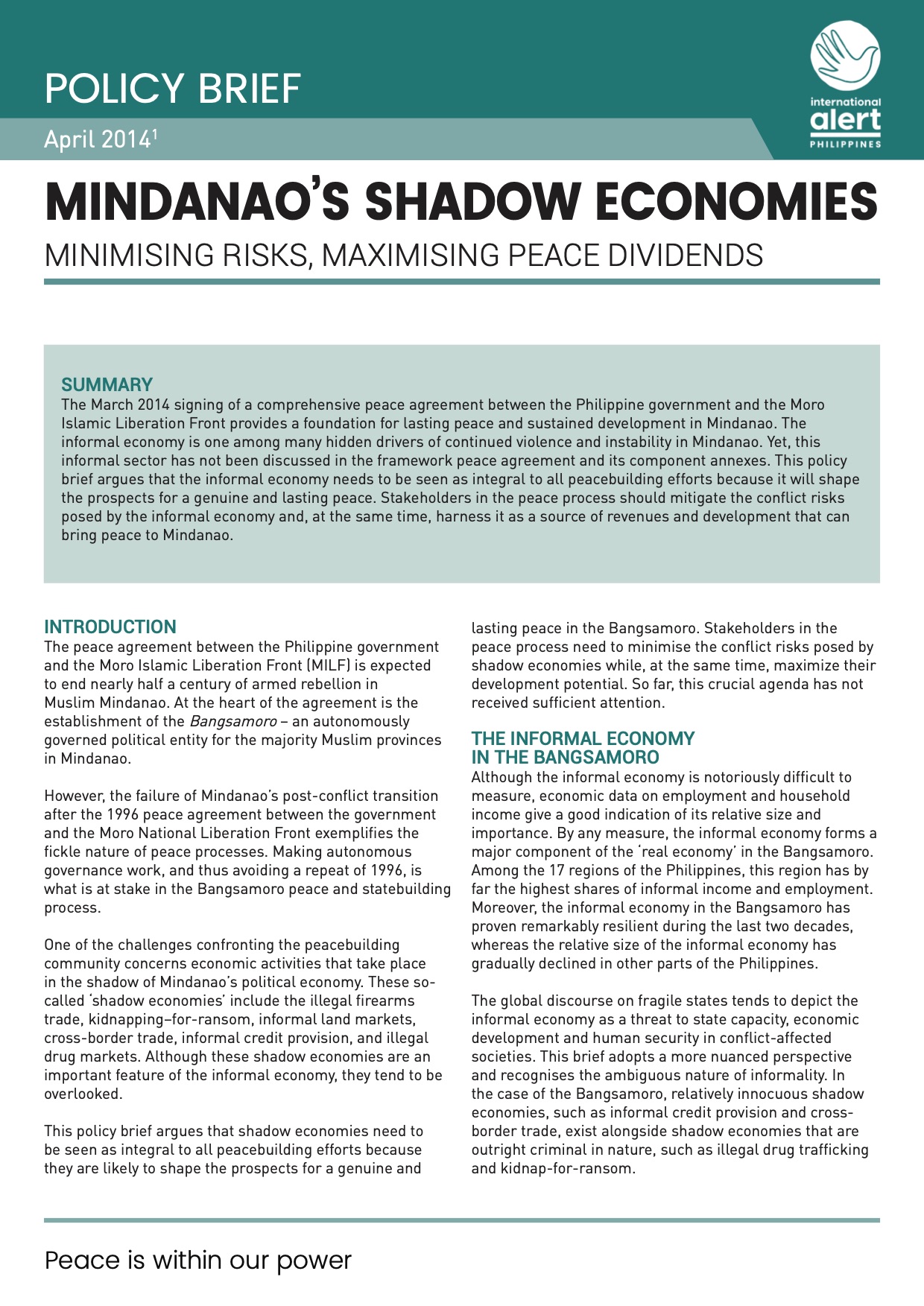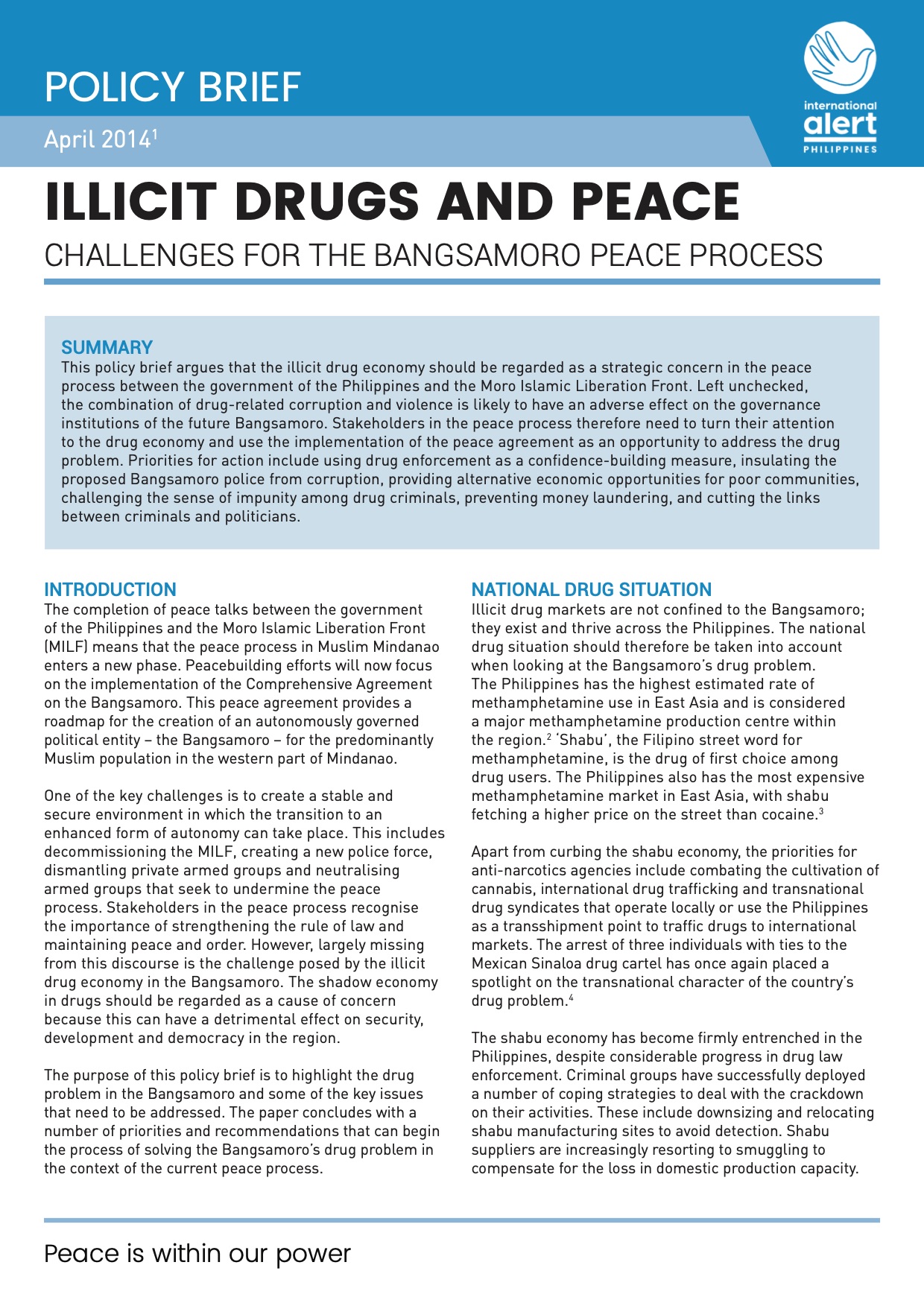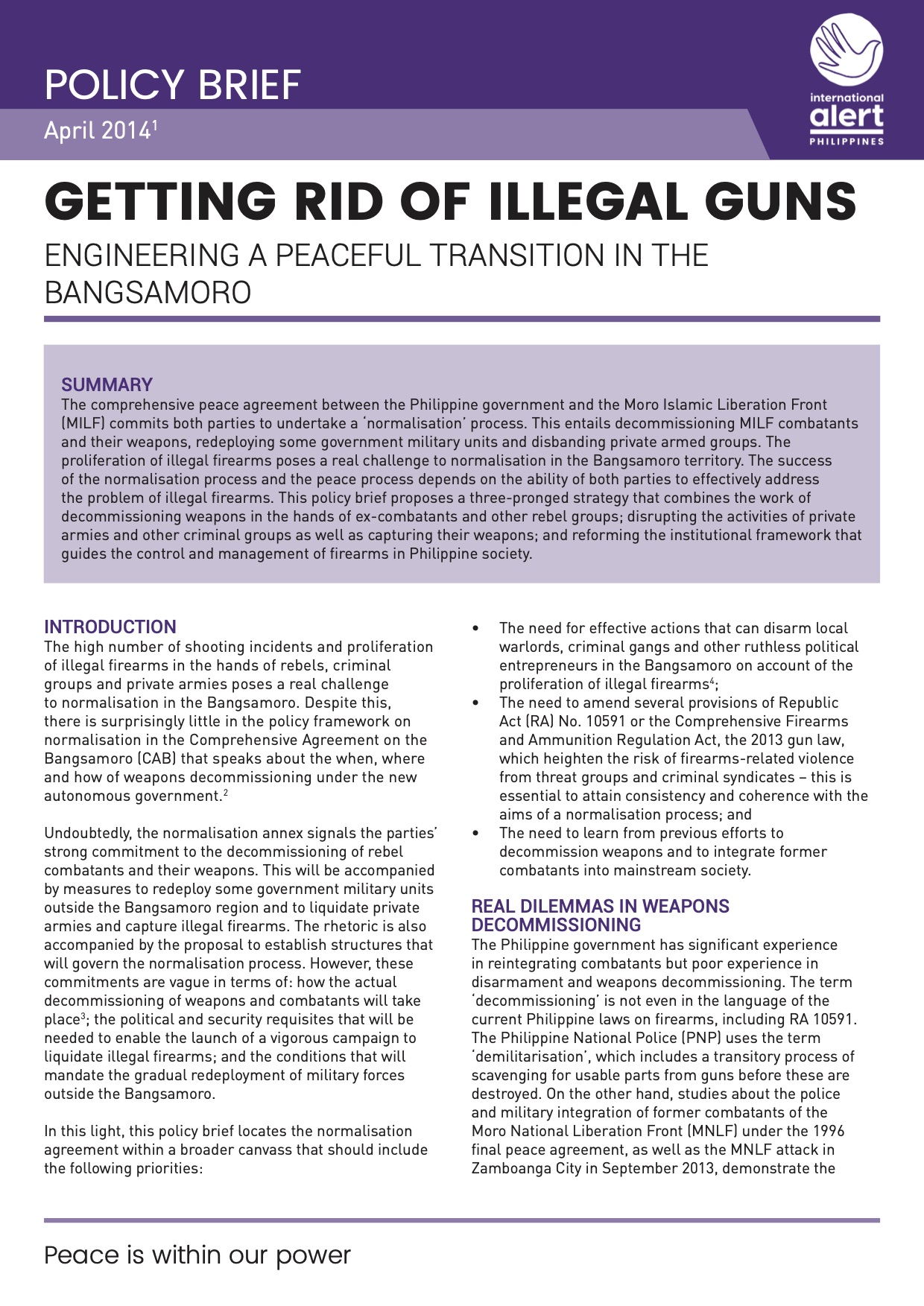Briefs
Climate Conflict Action’s Policy Briefs and Thematic Papers provide researchers and policymakers with evidence-based analysis and nuanced solutions to conflict-related issues. These papers and briefs feature data-driven insights on how conflict develops and interacts with other causal dynamics, and how it can be mitigated and resolved.
On the one hand, the thematic papers delve into critical topics such as the pandemic, the Anti-Terrorism Law, conflict strings, climate risks and other factors, providing depth and context to the data. On the other, policy briefs introduce data-driven proposals to aid in policy-making and enrich discourse.
Dansalan Quarterly Abstracts
10 July 2022 Conflict Alert
This brief is a collection of abstracts of all the published issues of Dansalan Quarterly. The Dansalan Quarterly is a publishing venture established in 1975 for the Dansalan Research Center, which hopes to enlighten readers about the rich history and culture of Muslim Mindanao, as well as inform about the decades-old struggles of Moros in their quest for peace. It combines historical, sociological, ethnographic, anthropological, historiographical, and political accounts from prominent authors. Both Filipino and American authors contributed in making this journal a reality and eventually a success. Dansalan Quarterly is essentially a rich feast of scholarly work about the life of the Moros.
Read MorePolicy Brief on the Proposed Indigenous Peoples' Code
03 November 2021 Conflict Alert
To aid in the legislation of the Indigenous Peoples’ (IP) Code in the Bangsamoro, this policy brief provides analysis and recommendations on the Cabinet Bill No. 40 that was filed by former Members of the Parliament Romeo Saliga and Melanio Ulama in July 2021 that will strengthen land management and peaceful conflict resolutions and processes in the Bangsamoro including provisions on scope and coverage, ancestral domain claims, camp transformation sites, the indigenous concept of ownership and ancestral lands, free prior and informed consent, management of natural resources, the jurisdiction of the Ministry of Indigenous People’s Affairs (MIPA), the Mutual Support Fund, and rights of women. Some of the major recommendations include citing Non-Moro Indigenous Peoples (NMIPs) and the acknowledgement of their Ancestral Domain Claims to ensure that MIPA is mandated to recognize the existing claims of NMIPs.
Read MoreConflict Monitoring – Stakeholder Engagement Plan
22 September 2021 Conflict Alert
This document is the Stakeholder Engagement Plan (SEP) which forms part of the environmental and social standard (ESS) requirement of the World Bank for the implementation of International Alert Philippines Conflict Monitoring – Philippines Project.
Read MoreConflict Monitoring – Environmental and Social Commitment Plan
22 September 2021 Conflict Alert
Conflict monitoring (Conflict Alert) is one of the core programming priorities of International Alert Philippines. The programme has contributed to the promotion of inclusive governance and evidence-based programming and policy-making in Mindanao, the Bangsamoro, and parts of Luzon in the last decade. The World Bank funded project aims to provide useful, timely, and reliable conflict data and analysis that enables key stakeholders to develop relevant policy responses, strategies, advocacies, and actions.
Read MoreCOVID and conflict dynamics in the Bangsamoro
21 May 2021 Conflict Alert
At the onset of the COVID-19 crisis in early 2020, the government implemented a series of lockdowns with varying rules and coverage in the Bangsamoro. Although these lockdowns have generally had the same conflict-mitigating effect as the martial law in Mindanao from May 2017 to December 2019, data showed that it has also caused a rise in tension between enforcers and citizens. Aside from brewing tension outside of the home, domestic gender-based violence and child abuse have risen. This makes the case for making the government’s COVID-19 response sensitive to the vulnerabilities of women and children, providing avenues for reporting, designating emergency shelters, and guaranteeing quick action on complaints.
Read MorePorous Peace in Mindanao’s Free Trade Area
26 April 2021 Conflict Alert
This policy brief aims to stimulate discussions around cross-border trade and curb the tendencies of violence in this form of economic activity. The principal recommendation is for the Bangsamoro Transition Authority and the Bangsamoro government to design nuanced and conflict-sensitive mechanisms to move small traders into the formal economy and develop the area as a de facto free trade zone, among others.
Read MoreLand Governance in the Bangsamoro
26 April 2021 Conflict Alert
This policy brief identifies the legal and administrative remedies that should be undertaken to fill the land gaps in the current peace pact between the Philippine government and the Moro Islamic Liberation Front. The proposal offers a feasible course of action to prevent or resolve land-related conflicts between and among families and clans by establishing a Bangsamoro Land Commission that will design a pluralistic institutional framework for land governance.
Read MoreMindanao’s Shadow Economies
26 April 2021 Conflict Alert
This policy brief argues that the informal economy in Mindanao, one among many hidden drivers of continued violence and instability in the region, needs to be seen as integral to all peacebuilding efforts. This brief proposes that stakeholders in the peace process should mitigate the conflict risks posed by the informal economy and, at the same time, harness it as a source of revenue and development that can bring peace to Mindanao.
Read MoreIllicit Drugs and Peace
26 April 2021 Conflict Alert
This policy brief argues that the illicit drug economy should be regarded as a strategic concern in the peace process between the government of the Philippines and the Moro Islamic Liberation Front. Priorities for action include using drug enforcement as a confidence-building measure, insulating the proposed Bangsamoro police from corruption, providing alternative economic opportunities for poor communities, challenging the sense of impunity among drug criminals, preventing money laundering, and cutting the links between criminals and politicians.
Read MoreGetting Rid of Illegal Guns
26 April 2021 Conflict Alert
This policy brief proposes a three-pronged strategy to combat illegal firearms in the Bangsamoro. The principal proposal is the decommissioning of weapons in the hands of ex-combatants and other rebel groups, disrupting the activities and capturing the weapons of private armies and other criminal groups, and reforming the institutional framework that guides the control and management of firearms in Philippine society.
Read More